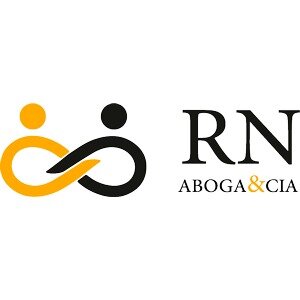Best Housing, Construction & Development Lawyers in Spain
Share your needs with us, get contacted by law firms.
Free. Takes 2 min.
Free Guide to Hiring a Real Estate Lawyer
Or refine your search by selecting a city:
List of the best lawyers in Spain
About Housing, Construction & Development Law in Spain
In Spain, housing, construction, and development are regulated by a comprehensive set of laws that ensures the orderly development of urban and rural areas. These laws are designed to balance the interests of property developers, homeowners, and the community. The foundation of these legal frameworks is the Spanish Constitution, which establishes the right to adequate housing and the regulation of land use to safeguard the environment and promote quality living standards. Additionally, European Union regulations also impact this field, particularly in areas concerning environmental standards and competition law.
Why You May Need a Lawyer
There are many situations in which individuals or businesses might require legal assistance in the field of housing, construction, and development in Spain. Here are some common scenarios:
- Buying or selling property and needing guidance on contracts and negotiations.
- Understanding zoning laws and obtaining necessary permits for building or renovation projects.
- Disputes with contractors or developers regarding construction projects, including quality of work, delays, or breaches of contract.
- Eviction proceedings or tenancy disputes.
- Navigating environmental regulations that impact construction and development plans.
- Legal issues related to shared ownership or condominium communities.
Local Laws Overview
Spain's housing, construction, and development legal framework comprises several key elements:
- Urban Planning Law: Governs land use planning, ensuring sustainable urban development through the strategic location of infrastructures and services.
- Building Regulations: Code known as "Código Técnico de la Edificación" (CTE) which controls the technical demands for buildings regarding safety, health, access, and usage.
- Horizontal Property Law: Pertains to the management and regulation of shared community properties such as apartment buildings.
- Rental Laws: Regulated by the Urban Leases Act, which governs lease agreements, protecting both landlords' and tenants' rights.
- Environmental Laws: Includes regulations to protect natural landscapes, archaeological sites, and ensuring sustainable building practices.
Frequently Asked Questions
What should I check before buying a property in Spain?
Before purchasing, ensure the property has legal construction permits, clear ownership, no outstanding debts or liens, and consult an experienced real estate lawyer to review all documents.
How does the Urban Leases Act affect rental agreements?
The Urban Leases Act provides regulations for the duration, rights, and obligations for both parties, assuring tenant protection and fair practices in lease negotiations.
What are the obligations of property owners in Spain?
Property owners must maintain their property in good condition, comply with local regulations, pay annual property taxes (IBI), and contribute to shared expenses in community properties.
How can I resolve disputes with a neighbor about property boundaries?
Disputes can often be resolved through direct negotiation, mediation, or by consulting a lawyer who can negotiate or, if necessary, resolve the issue in court.
Do I need building permits for small renovations?
Permits are generally required for structural changes or major renovations. Consult your local municipality to understand specific permit requirements for your project.
What is the role of a notary in property transactions?
In Spain, a notary plays a crucial role in authenticating property transactions, ensuring all documents are legally sound, and providing legal certainty to the parties involved.
What are my rights if a construction project is delayed?
If a project is delayed without reasonable cause, you may be entitled to compensation or remedies as outlined in your contract, and legal action can be a recourse through a competent lawyer.
Are there special legal considerations for foreign buyers?
Foreign buyers need a NIE (Número de Identificación de Extranjero) for property transactions and should be aware of special residency requirements or tax obligations.
What is a community of property owners, and how does it work?
This is a legal entity composed of property owners in a shared building, responsible for communal area management, with a board and statutes regulating its functioning and expenses.
How do zoning laws affect property development?
Zoning laws dictate how land in specific areas can be used, influencing building plans, densities, landscaping, and even the type of permissible business activities in a given area.
Additional Resources
Here are some additional resources that may be helpful when seeking legal advice or information on housing, construction, and development in Spain:
- Ministry of Development (Ministerio de Fomento): Oversees building regulations and policies.
- General Council of Spanish Lawyers (Consejo General de la Abogacía Española): Can help you find a qualified lawyer specializing in real estate law.
- Local City Council (Ayuntamiento): Provides specific local development plans, zoning regulations, and permit requirements.
- Consumer Organizations: Such as "Organización de Consumidores y Usuarios" (OCU), offer guidance and rights education.
Next Steps
If you require legal assistance in housing, construction, and development, start by identifying the specific issue you are facing, then seek a consultation with a specialized lawyer. Gather all relevant documents, such as contracts, correspondences, and property titles, to ensure a productive initial meeting. Utilize local resources and organizations to further educate yourself about your rights and obligations, and consider engaging a professional legal advisor to navigate the complex Spanish legal landscape effectively.
Lawzana helps you find the best lawyers and law firms in Spain through a curated and pre-screened list of qualified legal professionals. Our platform offers rankings and detailed profiles of attorneys and law firms, allowing you to compare based on practice areas, including Housing, Construction & Development, experience, and client feedback.
Each profile includes a description of the firm's areas of practice, client reviews, team members and partners, year of establishment, spoken languages, office locations, contact information, social media presence, and any published articles or resources. Most firms on our platform speak English and are experienced in both local and international legal matters.
Get a quote from top-rated law firms in Spain — quickly, securely, and without unnecessary hassle.
Disclaimer:
The information provided on this page is for general informational purposes only and does not constitute legal advice. While we strive to ensure the accuracy and relevance of the content, legal information may change over time, and interpretations of the law can vary. You should always consult with a qualified legal professional for advice specific to your situation.
We disclaim all liability for actions taken or not taken based on the content of this page. If you believe any information is incorrect or outdated, please contact us, and we will review and update it where appropriate.
Browse housing, construction & development law firms by city in Spain
Refine your search by selecting a city.















